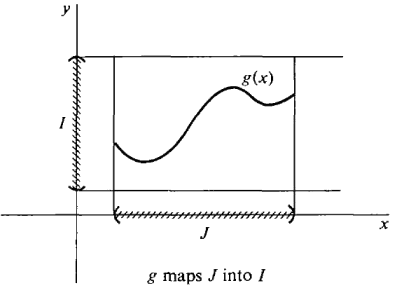| The ebook Elementary Calculus is based on material originally written by H.J. Keisler. For more information please read the copyright pages. |

|

Home  Integral Integral  Integration by Change of Variables Integration by Change of Variables  Integration by Change of Variables Integration by Change of Variables |
|||||||






|
|||||||
Integration by Change of Variables
We have seen that the sum, constant, and power rules for differentiation can be turned around to give the sum, constant, and power rules for integration. In this section we shall show how to make use of the Chain Rule for differentiation in problems of integration. The Chain Rule will lead to the important method of integration by change of variables. The basic idea is to try to simplify the function to be integrated by changing from one independent variable to another. If F is an antiderivative of f and we take u as the independent variable, then
But if we take x as the independent variable and introduce u as a dependent variable u = g(x), then du and du = g'(x) dx, The notation DEFINITION Let I and J be intervals. We say that a function g maps J into I if for every point x in J, g(x) is defined and belongs to I (Figure 4.4.1).
Figure 4.4.1 THEOREM 1 (Indefinite Integration by Change of Variables) Suppose I and J are open intervals, f has domain I, g maps J into I, and g is differentiable on J. Assume that when we take u as the independent variable,
Then when x is the independent variable and u = g(x),
PROOF Let H(x) = F(g(x)). For any x in J, the derivatives g'(x) and F'(g(x)) = f(g(x)) exist. Therefore by the Chain Rule, H'(x) = F(g(x))g'(x) = f (g(x))g'(x). It follows that
So when u = g(x), we have
Theorem 1 gives another proof of the general power rule
where u is given as a function of the independent variable x, from the simpler power rule
where x is the independent variable.
In examples such as the above one, the trick is to find a new variable u such that the expression becomes simpler when we change variables. This usually must be done by an "educated" trial and error process. One must be careful to express dx in terms of du before integrating with respect to u.
|
|||||||
Home  Integral Integral  Integration by Change of Variables Integration by Change of Variables  Integration by Change of Variables Integration by Change of Variables |
|||||||
Last Update: 2006-12-05


 f(u) du is a family of functions of u,
f(u) du is a family of functions of u,


